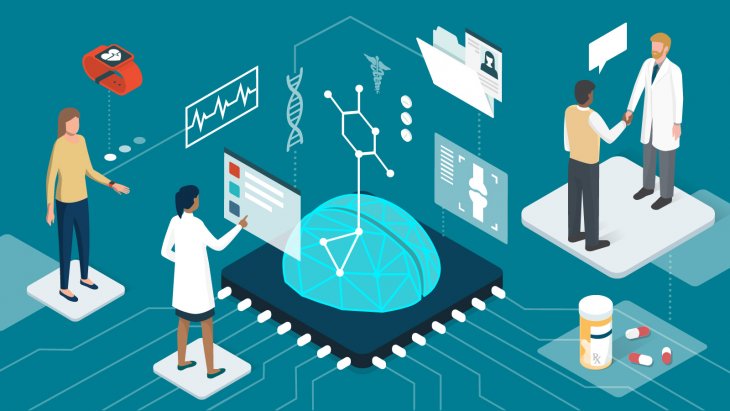- Home
- About
- Portfolio
Crush the Match – Medical School and Residency Platform
Food¢ense – Curbing Childhood Obesity and Food Waste
HealthStack – Shared and Jailed HIPAA Hosting $50
Marta Care – Let Us Help When You Can’t
MD Idea Lab – We Build Prototypes for Doctors
Nervcell – The Healthcare Web Browser
Patient Keto – Personalized Keto Medicine and Telehealth
SwipeChart – Rapid EMR Interface
Treatment Scores – Quantifying the Science of Medicine
Treatments – Diagnosed. Now What?
VIDRIO – Google Glass and EMR Interface
- Blog
- Contact
The Healing Power of Algorithms: Unleashing the Potential of Artificial Intelligence in Medicine
Introduction
Artificial Intelligence (AI) has emerged as a game-changer in the field of medicine, offering new horizons for diagnosis, treatment, and healthcare management. With the ability to process vast datasets and perform complex tasks at speeds unimaginable for humans, AI is poised to revolutionize the healthcare industry. In this article, we explore the tremendous potential of artificial intelligence in medicine and its transformative impact on patient care.
Disease Diagnosis and Early Detection
AI algorithms are becoming proficient at identifying patterns and anomalies in medical images, such as X-rays, MRIs, and CT scans. This capacity can lead to earlier and more accurate diagnoses, ultimately improving patient outcomes. For instance, AI can detect early signs of diseases like cancer, heart conditions, and neurological disorders, allowing for timely intervention.
Personalized Treatment Plans
AI analyzes patient data, including genetic information, medical history, and lifestyle factors, to create personalized treatment plans. By tailoring therapies to individual patients, healthcare providers can optimize the effectiveness of treatment and minimize adverse effects.
Drug Discovery and Development
AI accelerates drug discovery by simulating complex molecular interactions and predicting potential drug candidates. This reduces the time and cost involved in bringing new drugs to market, offering hope for more effective treatments for various diseases.
Clinical Decision Support
AI provides healthcare professionals with real-time decision support by analyzing patient data, suggesting treatment options, and predicting outcomes. It can assist in making informed decisions, reducing medical errors, and ensuring the best possible care.
Healthcare Automation
AI-powered chatbots and virtual assistants are becoming increasingly common in healthcare. They can answer patient queries, schedule appointments, and provide information on medications and post-treatment care, thus freeing up healthcare professionals’ time.
Predictive Analytics and Population Health Management
AI can analyze patient data to identify at-risk populations, predict disease outbreaks, and improve preventive care. This is particularly valuable for public health initiatives and the management of chronic conditions.
Telemedicine and Remote Monitoring
AI enhances telemedicine by enabling remote monitoring of patients’ vital signs, medication adherence, and general well-being. This approach is especially beneficial for patients with chronic conditions who require continuous care.
Radiology and Pathology Assistance
AI can assist radiologists and pathologists in interpreting medical images by highlighting areas of concern, reducing the chance of oversight, and expediting diagnosis.
Natural Language Processing (NLP) for Medical Records
NLP technologies extract valuable information from unstructured medical records. This aids in clinical research, quality improvement, and more accurate coding for billing and insurance purposes.
Patient Engagement and Wellness
AI-driven health apps and wearables help patients manage their health by tracking vital signs, providing health tips, and sending medication reminders. They also encourage a proactive approach to wellness.
Conclusion
Artificial intelligence has the potential to reshape the landscape of medicine in profound ways. Its ability to analyze data, make predictions, and assist healthcare providers empowers medical professionals to deliver more accurate diagnoses and effective treatments, while also enhancing the patient experience. As AI continues to evolve and integrate into healthcare systems, it holds the promise of improving patient outcomes, reducing healthcare costs, and addressing some of the most pressing challenges in the medical field. The future of medicine is increasingly intelligent, and it is poised to benefit both healthcare providers and patients alike.

